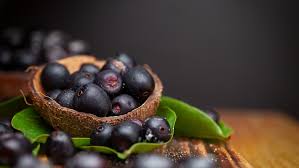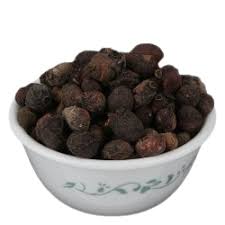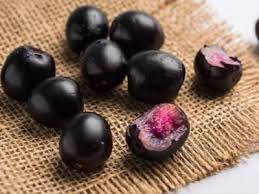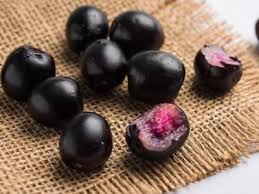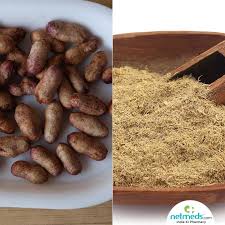Inflammation, while a natural response to injury or infection, can become chronic and lead to various health issues, such as joint pain, digestive problems, and skin conditions. At Dirghaanshi, we explore natural Ayurvedic remedies that can help you reduce inflammation and promote long-term health and wellness. These ancient practices offer safe and effective solutions that address the root causes of inflammation, bringing balance to your body and mind.
Chronic inflammation is a growing concern in today’s fast-paced world, often linked to stress, poor diet, and lifestyle habits. Ayurveda, an ancient system of medicine, offers a holistic approach to reducing inflammation by balancing the body’s energies and promoting natural healing. Here’s how Ayurveda can help you combat inflammation and restore your body’s natural harmony:
1. Turmeric (Curcuma Longa) – The Golden Healer
Turmeric, with its active compound curcumin, is one of the most powerful anti-inflammatory herbs in Ayurveda. It has been used for centuries to alleviate pain and reduce inflammation in the body. Turmeric works by blocking inflammatory molecules and promoting a healthy immune response.
Benefits:
- Reduces joint pain and stiffness.
- Eases inflammation in the digestive tract.
- Supports the liver and detoxification processes.
How to Use:
- Drink turmeric tea.
- Add turmeric to soups, smoothies, or curries.
- Apply turmeric paste directly to inflamed areas for relief.
2. Ginger (Zingiber Officinale) – A Natural Anti-Inflammatory
Ginger is another powerful Ayurvedic herb with anti-inflammatory properties. It is rich in compounds like gingerol, which helps reduce inflammation and prevent further tissue damage. Ginger can ease digestive inflammation, reduce muscle soreness, and even relieve pain associated with arthritis.
Benefits:
- Reduces inflammation in joints and muscles.
- Helps alleviate nausea and digestive discomfort.
- Boosts overall immunity and circulatory health.
How to Use:
- Add fresh ginger to hot water or herbal teas.
- Include ginger in your cooking, especially in stir-fries and curries.
- Use ginger essential oil for massaging sore areas.
3. Ashwagandha (Withania Somnifera) – Stress Reduction for Inflammation
Chronic stress is a major contributor to inflammation in the body. Ashwagandha, an adaptogenic herb, helps reduce stress levels, thereby lowering inflammation. It also has anti-inflammatory and antioxidant properties that support the body in managing inflammation-related conditions like arthritis and autoimmune diseases.
Benefits:
- Reduces stress and inflammation.
- Enhances energy levels and endurance.
- Balances Vata and Pitta doshas, promoting emotional stability.
How to Use:
- Take Ashwagandha powder or capsules as a supplement.
- Brew it as a tea with honey and lemon.
- Add Ashwagandha to smoothies or soups.
4. Triphala – A Digestive Tonic for Inflammation
Triphala is a combination of three potent Ayurvedic fruits: Amla, Haritaki, and Bibhitaki. Known for its ability to cleanse and rejuvenate the digestive system, Triphala also helps reduce inflammation caused by digestive issues like bloating, constipation, and acidity. It promotes gut health, which is essential for reducing systemic inflammation.
Benefits:
- Reduces gut-related inflammation.
- Enhances digestion and absorption of nutrients.
- Detoxifies the body and supports the immune system.
How to Use:
- Take Triphala powder with warm water before bed.
- Add Triphala to your daily herbal tea or tonic.
- Use Triphala tablets as directed by a healthcare provider.
5. Holy Basil (Tulsi) – The Sacred Herb for Inflammation
Holy Basil, or Tulsi, is revered in Ayurveda for its healing properties. It is known for reducing inflammation, especially in the respiratory and digestive systems. Tulsi also boosts immunity, reduces stress, and supports overall well-being. Its anti-inflammatory compounds help combat pain and swelling in the body.
Benefits:
- Reduces inflammation in the respiratory system.
- Eases joint pain and muscle stiffness.
- Boosts immunity and reduces stress.
How to Use:
- Brew Tulsi leaves into a soothing tea.
- Use Tulsi oil for massage on inflamed areas.
- Incorporate Tulsi in your daily meals or juices.
6. Cumin (Cuminum Cyminum) – Calming Inflammation in the Digestive System
Cumin, a staple in Ayurvedic cooking, helps soothe inflammation in the digestive tract. It promotes healthy digestion and reduces bloating, cramps, and discomfort. Cumin seeds also support the liver in detoxifying the body, which is vital for managing inflammation.
Benefits:
- Reduces digestive tract inflammation.
- Eases gas, bloating, and indigestion.
- Supports liver function and detoxification.
How to Use:
- Add cumin to your meals or teas.
- Make cumin water by soaking seeds overnight and drinking the water in the morning.
- Use cumin essential oil in massage blends.
7. Dietary Changes to Combat Inflammation
Ayurveda encourages eating a balanced diet that promotes anti-inflammatory benefits. Foods that are rich in antioxidants, omega-3 fatty acids, and anti-inflammatory spices can significantly help reduce chronic inflammation. Include foods like leafy greens, berries, nuts, seeds, and fatty fish in your diet, along with Ayurvedic herbs.
Benefits:
- Provides essential nutrients to fight inflammation.
- Supports a healthy, balanced immune system.
- Helps reduce risk factors associated with chronic diseases.



